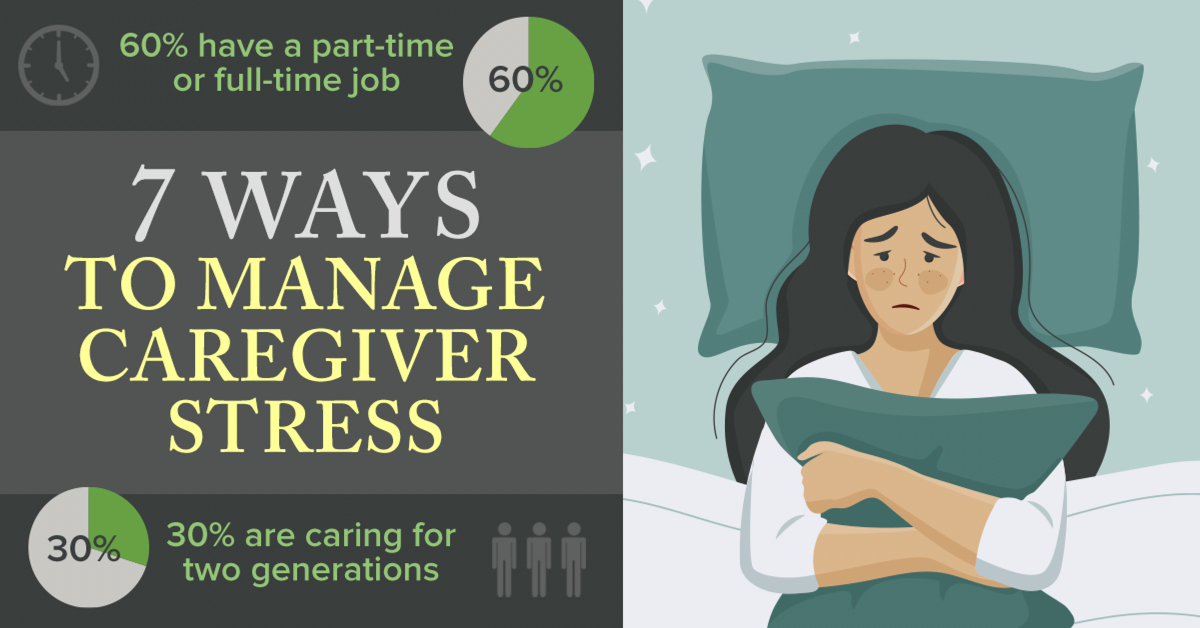You missed an important meeting at work, because your mom fell in the shower.
You left your son’s big soccer game to take your dad to a doctor’s appointment.
You forgot to make cookies for your daughter’s school bake sale, because you were busy making dinner for your aging parents.
If this sounds like your life, you’re not alone.
A new report from AARP shows that there are 38 million family caregivers in the U.S. and they spent more than 36 billion hours caring for adults with chronic, disabling or serious health conditions. Other findings include:
- 60% of caregivers juggle work and care
- 60% of caregivers worked a full-time or part-time job
- 40% of caregivers cite emotional stress of juggling caregiving with paid work as the biggest challenge
- 30% of all caregivers are caring for two generations
- Caring for both an older family member as well as children or grandchildren results in higher level of emotional and financial strain
“Caring for an aging loved one can be incredibly rewarding, but it can also be very challenging,” said Sierra Goetz, co-founder and operations manager at Tudor Oaks Home Care’s partner, the HomeCare Advocacy Network (HCAN). “When you’re taking care of someone else, it’s easy to forget about your own health and wellbeing. Neglecting your own needs could lead to caregiver burnout.”
To help manage caregiver stress and ward off burnout out, Goetz suggests:
Accepting or asking for help. If help is offered, take it. If you have to ask family or friends for assistance, do it. Be prepared with a list of ways others can help, and let the helper choose what he or she would like to do.
Delegating. Make a list of daily tasks and, when possible, delegate. Maybe your spouse can cook dinner a couple of days a week or your children can take care of the laundry.
Taking breaks. Understand that it’s okay take breaks from caregiving. When someone else takes over, get out of the house. Visit friends, go to a movie, get a massage – anything that can help you relax.
Prioritizing self care. Eat well, exercise, relax and get enough sleep. If you’re not healthy, the quality of care you’re able to provide will suffer.
Getting connected. Take time to learn about caregiving resources in your community, including options for meal delivery, transportation and housekeeping.
Joining a support group. It helps to know you’re not alone. A support group can validate your feelings, offer encouragement and help you overcome some of the challenges you face. You also will be able to meet new people and perhaps build lasting friendships.
Enlisting the help of a professional caregiver. Whether it’s for a few hours a day or a few days a week, a professional caregiver will ensure your aging loved one is getting the best care possible – while giving you a much needed break.
“At Tudor Oaks Home Care, we help families find the perfect balance between caring for their loved one and taking good care of themselves,” Goetz said. “From companionship to personal and dementia care, our trained, professional caregivers are committed to helping you meet the unique needs of your aging loved ones – while giving you peace of mind.”
To learn more about our customized care and respite plans, visit www.TudorOaksHomeCare.com
